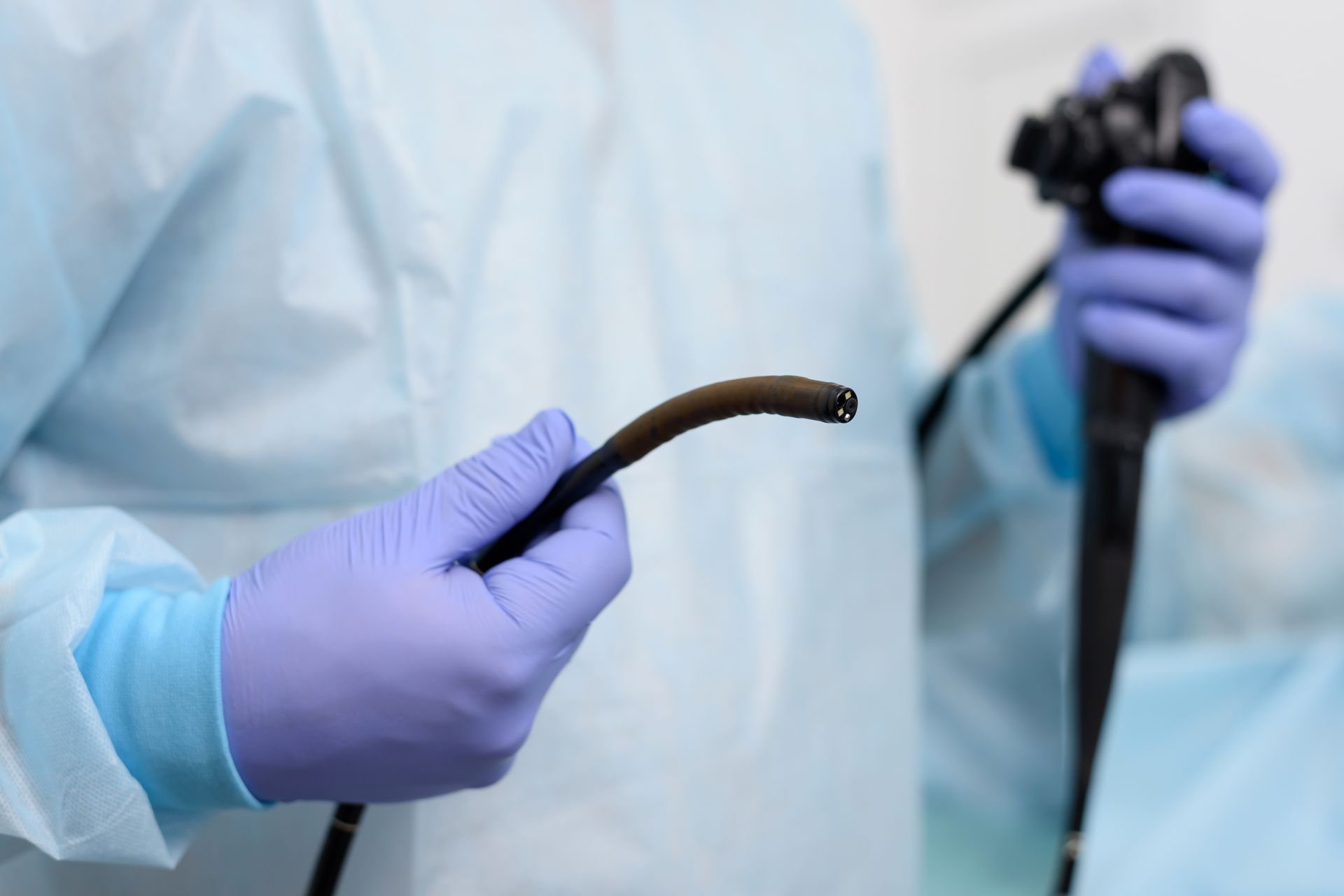Understanding Colonoscopy for High-Risk Patients

A colonoscopy is a crucial tool for preventing and detecting colorectal cancer, particularly for high-risk individuals. For residents of Phoenix, access to expert care and modern facilities ensures that these lifesaving screenings are performed with precision. High-risk patients, such as those with a family history of colorectal cancer, genetic predispositions, or preexisting conditions, require tailored approaches to colonoscopy Phoenix. Understanding the unique considerations and benefits of colonoscopies for high-risk individuals can help patients take proactive steps toward safeguarding their health. This post will explore what defines high-risk patients, the importance of customized screening schedules, and the benefits of early detection.
Who is High Risk?
Not everyone has the same likelihood of developing colorectal cancer. High-risk individuals face an elevated risk due to genetic, familial, or medical factors. Understanding and identifying these risk factors empowers patients to seek timely medical advice and appropriate screenings.
1. Family History of Colorectal Cancer
A strong family history, particularly if a first-degree relative was diagnosed before age 60, significantly increases risk. In such cases, genetic counseling may be recommended to assess inherited syndromes like Lynch syndrome.
2. Genetic Syndromes
Syndromes such as familial adenomatous polyposis (FAP) predispose individuals to colorectal cancer. These patients often require colonoscopies starting in their teenage years. Genetic testing and early interventions are vital to managing these risks.
3. Inflammatory Bowel Diseases (IBD)
Chronic conditions like Crohn's disease or ulcerative colitis elevate cancer risks due to prolonged inflammation. For these individuals, screenings may start earlier and occur more frequently to monitor for precancerous changes.
Specialized Screening Schedules
For high-risk individuals, the timing and frequency of colonoscopies differ significantly from standard guidelines. Tailoring these schedules is essential to maximize the effectiveness of early detection.
1. Starting Screenings Earlier
While average-risk individuals begin screenings at age 45, high-risk patients may need to start as early as their teens or 20s, depending on their specific risk factors. Starting earlier provides a head start in identifying and addressing abnormalities.
2. More Frequent Screenings
High-risk individuals often require screenings every one to three years rather than the standard 10-year interval. This increased frequency ensures that any developing issues are caught at an early, treatable stage.
3. Dynamic Adjustments Over Time
As patients age or as their conditions evolve, their screening schedules may need adjustments. For example, someone with IBD might initially undergo annual screenings but extend the interval if their condition remains stable over time.
Tailored Preparations
Preparing for a colonoscopy can be challenging, especially for high-risk patients. However, tailored preparation plans help ensure safety and thorough exams. Not only do you need medical preparations but also financial preparations. Read “The Cost Of A Colonoscopy: Copper Mountain Surgical,” to learn how much you have to prepare for a colonoscopy.
1. Customized Bowel Prep Protocols
High-risk patients with IBD or other conditions may require special bowel preparation solutions that minimize irritation. Physicians may recommend gentler methods to ensure the colon is clean without causing discomfort.
2. Medication Adjustments
Some high-risk individuals take medications that affect blood clotting or immune response. Coordination with a healthcare provider to temporarily adjust or stop certain medications is crucial for a safe procedure.
3. Pre-Procedure Consultations
A detailed discussion with the medical team helps address concerns and provides clear instructions. High-risk patients benefit from extra attention to ensure their unique needs are met, such as dietary adjustments or hydration tips.
Benefits for Early Detection
Colonoscopy is the gold standard for detecting and preventing colorectal cancer, particularly for those at elevated risk. With these benefits, colonoscopies remain one of the most effective tools for long-term health management.
1. Catching Precancerous Polyps
Polyps are abnormal growths in the colon that can turn into cancer over time. Regular colonoscopies help detect these polyps in their early, non-cancerous stages. For high-risk patients, finding and removing polyps before they become cancerous is crucial for reducing the chances of developing colorectal cancer. Early intervention allows for more effective treatment and prevention strategies.
2. Improved Survival Rates
When colorectal cancer is detected in its early stages, treatment options are more effective, and survival rates improve significantly. For high-risk individuals, regular screenings help detect abnormalities before symptoms appear. Identifying cancer early increases the chance of successful treatment, reducing the need for invasive procedures and enhancing long-term health outcomes. Early detection is key to saving lives.
3. Peace of Mind
Knowing that colorectal cancer is being monitored regularly through screenings can provide high-risk patients with significant peace of mind. Proactive care allows patients to stay ahead of potential issues and reduce the anxiety of the unknown. Regular screenings ensure that any changes are caught early, offering reassurance that steps are being taken to safeguard their health.
Coordination with Specialists
High-risk cases often require collaboration between gastroenterologists, genetic counselors, and primary care physicians. Coordinated care is essential to address the complexities of each patient’s situation. This collaborative approach ensures that high-risk patients receive the highest level of care and monitoring.
1. Multidisciplinary Teams
High-risk patients benefit from a team-based approach that includes gastroenterologists, genetic counselors, and primary care physicians. Gastroenterologists focus on the technical aspects of screenings, while genetic counselors assess familial risks. This collaboration ensures all risk factors are thoroughly addressed, leading to a comprehensive and personalized care strategy for each patient.
2. Individualized Care Plans
Specialists create personalized care plans for high-risk patients, considering their unique risk factors. These plans may include regular screenings, advanced imaging, and additional tests. As the patient’s health evolves, the care plan is adjusted to provide the most effective and up-to-date monitoring and intervention strategies.
3. Ongoing Communication
Continuous communication among specialists ensures comprehensive care. Regular updates allow the team to adjust treatment plans based on the patient’s condition or test results. This ongoing dialogue helps avoid overlooked details and ensures the patient remains informed and supported throughout their treatment process.
Conclusion
For high-risk patients, colonoscopy is a vital tool in preventing and detecting colorectal cancer. By understanding their risk factors, adhering to customized screening schedules, and benefiting from early detection, these patients can significantly reduce their cancer risks. Tailored preparation and coordination with specialists further enhance safety and effectiveness. With proactive care and the right medical team, high-risk patients can confidently prioritize their health and well-being.
Copper Mountain Surgical is dedicated to providing exceptional care for high-risk patients needing colonoscopies. Our skilled specialists understand the unique challenges of high-risk cases and offer personalized solutions to meet every need. With advanced facilities and a compassionate approach, we strive to make every patient feel confident in their care.
Schedule a consultation with Copper Mountain Surgical today to take control of your health with trusted expertise and cutting-edge technology.




